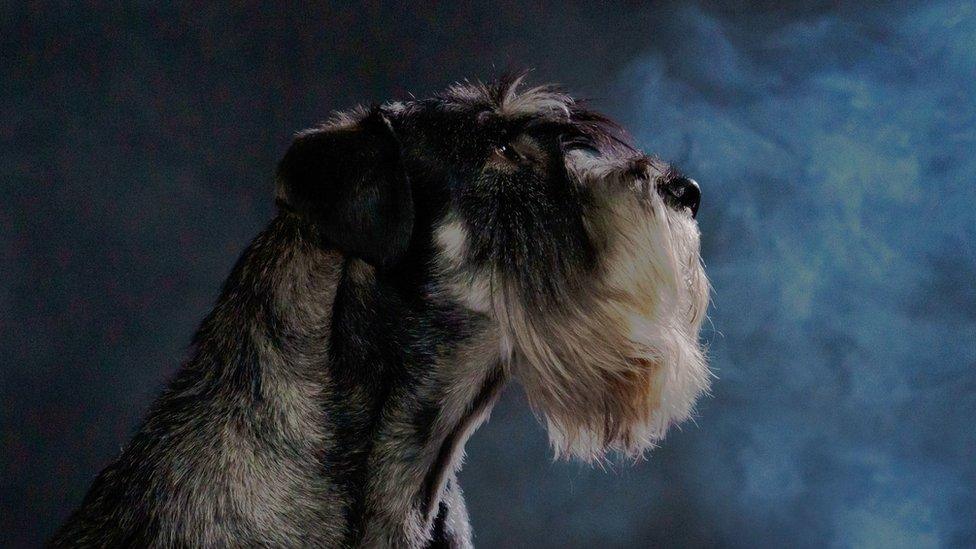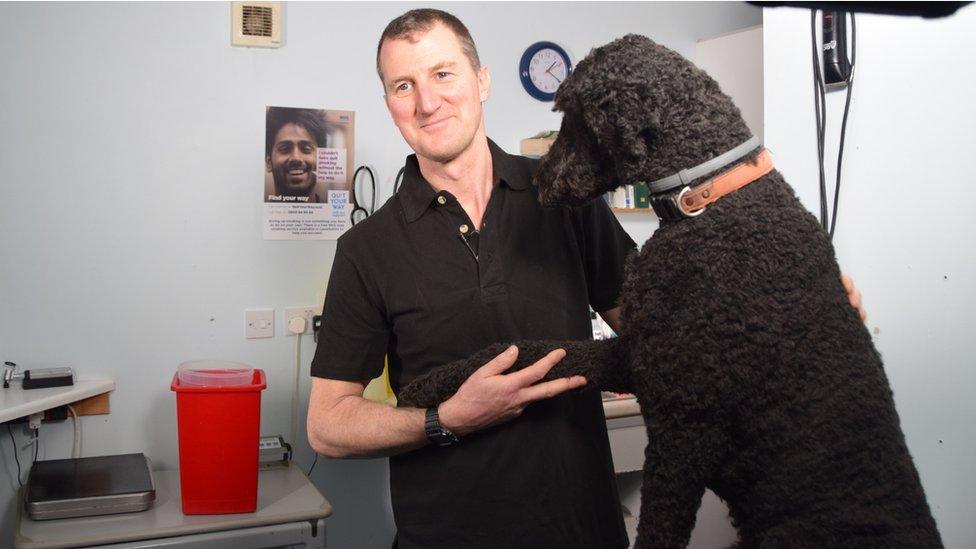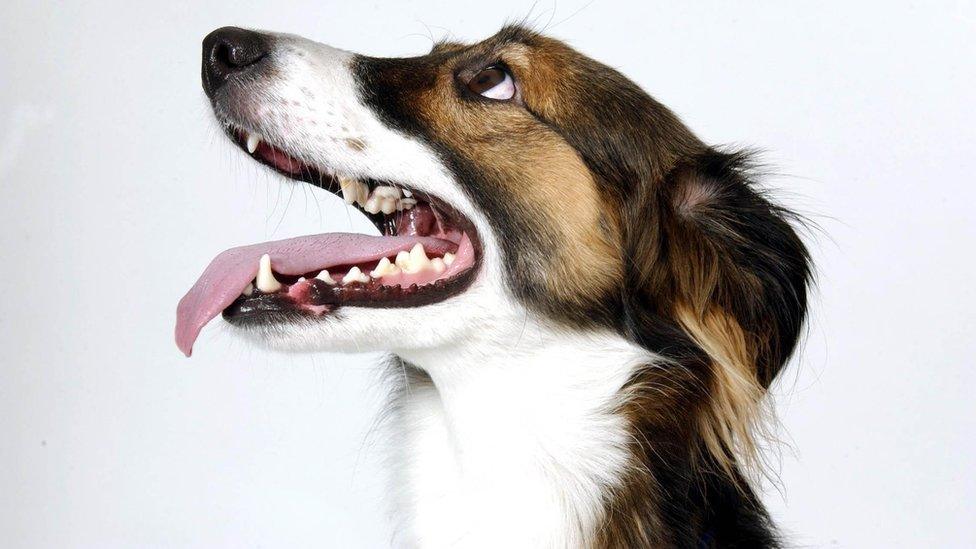Warning over second-hand smoke risk to pets
- Published
- comments

The harm that second-hand smoke causes to family pets is the focus of a new NHS health campaign.
NHS Lanarkshire has teamed up with local vets to highlight how smoking affects not just other people, but also animals.
Leaflet are being distributed to vets' surgeries describing the risks, but also offering support to quit smoking.
Dogs, cats, birds, guinea pigs and even fish are among domestic pets believed to be at risk from second-hand smoke.
A study by Glasgow University has previously found evidence that pets ingest harmful chemicals from smoke in greater quantities because of they often lick their fur.
Larger animals such as dogs were found to be a risk of cancer, while smaller pets such as rabbits or guinea pigs could develop breathing difficulties or skin disease.
Shirley Mitchell, health improvement manager at NHS Lanarkshire, told BBC Radio Scotland's Good Morning Scotland programme: "Tobacco smoke does harm pets in the same way it harms humans - respiratory diseases, cancers, ear, nose and throat conditions.
"For anyone who has a puppy, puppies love to chew and tobacco litter can be really hazardous."
Ms Mitchell said there was evidence that smokers might be influenced to quit if they thought their families and pets would benefit.
"We did a consultation with our community across Lanarkshire. They highlighted to us that one of the most important things to them was to protect their families, and they really placed an emphasis on the importance of pets being part of that family," she said.

Vet David Gardner-Roberts believes dogs such as Digger, pictured, could be harmed by second hand smoke
David Gardner-Roberts, a veterinary surgeon from Biggar, said: "Smoking tobacco is harmful to pets in the same way it's harmful to other people in our home. Although the smoke we see disappears quickly, the particles are so small that 85% of them are invisible and odourless.
"The levels of invisible but harmful toxins in the air can linger for up to five hours afterwards and pose a threat to pets of all kinds.
"Encouraging a smoke-free environment for children, families and pets can help protect them from inhaling the same toxic chemicals found in tobacco smoke, as there is no safe level of second-hand smoke."
Dog trainer Allan Ritchie said he believed the sensitivity of a dog's nose could make the scent of tobacco smoke quite "overpowering".
"There is some evidence to suggest dogs exposed to second-hand smoke tend to suffer more eye infections, allergies, and respiratory issues, including lung cancer, so protecting our pets from it is vital for their wellbeing," he said.
Related topics
- Published30 October 2017
